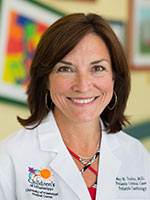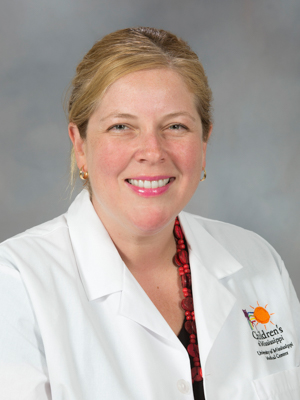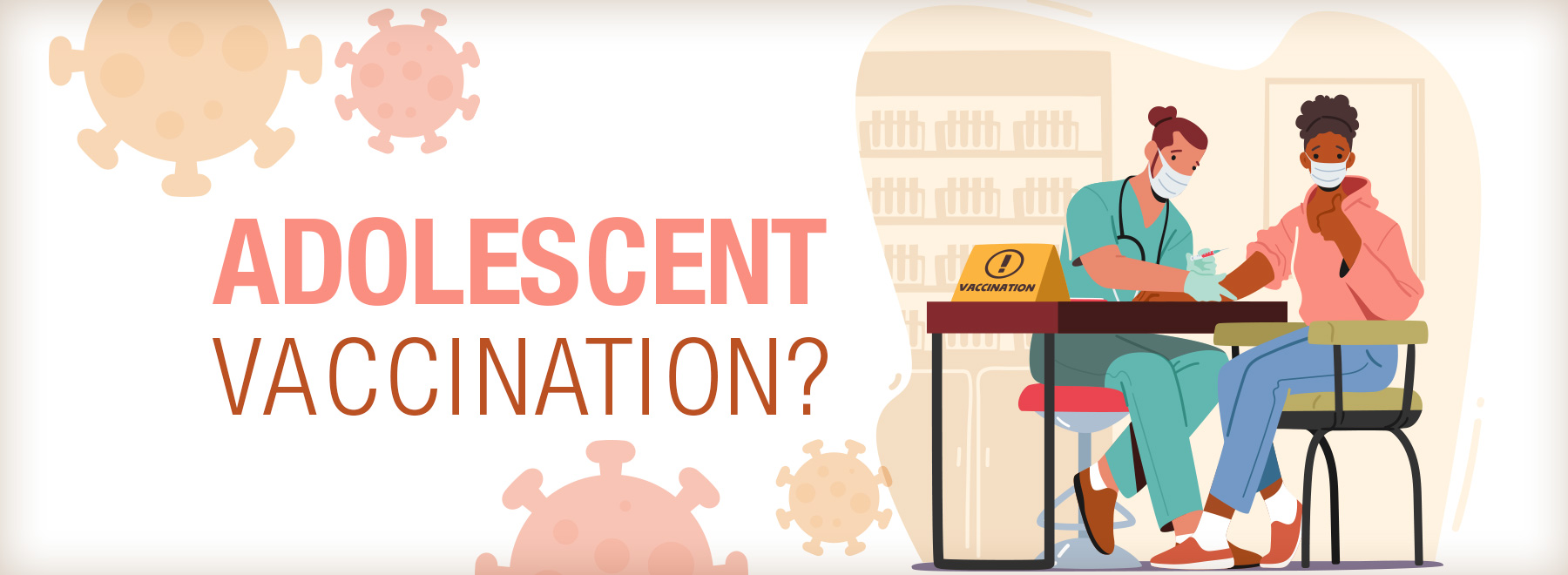Experts answer FAQs about Pfizer-BioNTech shot for teens
Now that anyone age 12 and older can receive a COVID-19 vaccination, parents may have questions about the vaccine and what to expect.
University of Mississippi Medical Center and Children’s of Mississippi experts have answers.
• Do pediatricians recommend children ages 12 to 15 receive the COVID-19 vaccinations?

Dr. Anita Henderson, president of the Mississippi Chapter of the American Academy of Pediatrics, said pediatricians are happy with the availability of COVID-19 vaccine to children ages 12 to 15.
“We have many patients and families who have been anxiously awaiting this announcement, and their children are ready to roll up their sleeves,” the Hattiesburg pediatrician said. “We know that children with asthma, obesity, diabetes and sickle cell are at increased risk of hospitalization from COVID-19. Some of these children and families have chosen virtual school this past year, so vaccinations will allow them now to safely return to the classroom.”

Dr. Mary Taylor, Suzan B. Thames Chair and professor and chair of pediatrics at UMMC, agrees.
“Approval of the Pfizer vaccine for children 12 to 15 years old is a significant step in pediatric care and in fighting COVID-19. This will protect them from the risk of COVID-19 and complications of it, such as Multisystem Inflammatory Syndrome in Children.”
MIS-C is a rare but serious condition that is thought to be a delayed reaction to COVID-19. In MIS-C, the immune system of a child who has been infected with COVID-19 attacks the body’s healthy cells, particularly those involving blood vessels, the heart and other organs.
• What COVID-19 vaccine is given to adolescents?
The only COVID-19 vaccine available to adolescents is the Pfizer-BioNTech vaccine, which had been open to those 16 and older. On May 12, the Centers for Disease Control and Prevention's Advisory Committee on Immunization Practices expanded eligibility for the Pfizer-BioNTech COVID-19 vaccine to children ages 12 to 15.
Mississippi 12-to-15-year-olds began getting doses of the Pfizer vaccine on May 13 at UMMC’s vaccine clinic in the Jackson Medical Mall Thad Cochran Center.
Doctors at UMMC and its pediatric arm, Children’s of Mississippi, recommend the Pfizer vaccine for adolescents 12 to 18 since it is the only COVID-19 vaccine approved for that age group. Those 18 and older should get the COVID-19 vaccine available to them.
In addition to Pfizer, Moderna and Johnson and Johnson have COVID-19 vaccines with emergency use authorization.
• Is an adolescent’s dose of the vaccine the same as an adult’s?
Yes, those age 12 and older get the same dose of the Pfizer vaccine as those 16 and older do. Two doses of the shot are given three weeks apart.
• How do we know the Pfizer vaccine is safe?
Clinical trials have shown that COVID-19 vaccines, including the Pfizer vaccine, are safe and effective for those 16 and older. After getting additional safety data for younger adolescents, the FDA extended authorization to those 12 to 15 years old.

"The vaccine safety and efficacy (or ability to prevent COVID-19) was assessed by the Food and Drug Administration first, which itself is a rigorous, independent review by vaccine experts,” said Dr. Charlotte Hobbs, professor of pediatric infectious diseases. “Importantly, the data they reviewed is all made publicly available, so this is a transparent process.”
The Advisory Committee on Immunization Practices, the committee made up of public health and infectious disease experts that makes vaccine recommendations for all vaccines in the U.S., voted unanimously to extend emergency use authorization of the Pfizer-BioNTech vaccine down to age 12.
“The reviews are really stringent, and this group is a tough crowd made up of many pediatricians also, who have vast experience already with vaccine safety,” Hobbs said. “Overall, the FDA and the ACIP and CDC authorization is based on independent and diligent, meticulous reviews of the data.
“These committees are made of vaccine experts, public health officials, pediatricians and infectious disease experts who have vast experience in reviewing vaccine safety and efficacy.”
• How effective is the Pfizer vaccine?
The Pfizer vaccine has shown to be 95 percent effective at preventing COVID-19, according to the U.S. Centers for Disease Control and Prevention.
“The Pfizer vaccine is tremendously effective,” Hobbs said. “The vaccine study looked at about 2,000 children aged 12-15, with half randomized to receive the vaccine and half to receive a placebo, which was saline. None of the children who received the vaccine developed illness.”
• What side effects does the vaccine have for those age 12 to 15?
Just as in adults, adolescents 12 and older who get the Pfizer vaccine do experience some side effects, including pain, redness and swelling at the site of injection and tiredness, headache, muscle pain, chills, fever and nausea, usually within a day or two of the vaccination.
“The more common side effects look like what we have seen in those 16 and older so far,” Hobbs said. “These include fever, body aches and fatigue, which seem more pronounced after the second vaccine.”
• Do COVID-19 vaccines affect fertility?
There is no evidence that COVID-19 vaccination affects fertility as a side effect, and the American Academy of Pediatrics has said that the vaccines don’t affect puberty or a child’s reproductive development in any way.
COVID-19 vaccination has also been recommended by the American College of Obstetricians and Gynecologists for women who are pregnant or would like to become pregnant in the future.
The Pfizer vaccine is an RNA vaccine, “and this RNA happens to have coding for the virus which our bodies recognize and make a response to protect us the next time we encounter it, so we do not develop disease after exposure,” Hobbs said. “RNA is natural molecule . . . and it also degrades really quickly. This is why the vaccine must be kept at such stringent low temperatures – it degrades so fast.
“It is not something that is going to hang around in your body, so having long-term impacts on fertility does not really make sense. Also, many women who received the vaccine have gotten pregnant and had perfectly healthy babies while protecting their babies and themselves against infection.”
• Once my child has been vaccinated, what activities can they enjoy safely? Will masks and social distancing still be required?
Children who have been fully vaccinated against COVID-19 may safely enjoy many of the activities they had to forego in 2020, with some caveats.
“The CDC has recommended more freedoms for those who are vaccinated, and this will extend to those 12 and older who are fully vaccinated, including the carrot of not having to quarantine,” Hobbs said. “Those do not extend to every circumstance, though.
“This is so new, and we have to remember that those 12 and younger cannot be vaccinated just yet.”
The American Academy of Pediatrics recommends that vaccinated adults who have children 12 and older who are not yet vaccinated or who cannot be vaccinated to continue wearing masks “out of solidarity, because this younger group remains vulnerable, and we cannot forget them,” Hobbs said.
Taylor said parents should talk with their pediatric health care providers to make sure all their children’s vaccinations are up to date as they schedule COVID-19 vaccinations for their adolescents.
“COVID-19 is a risk to children’s health, and so are diseases such as measles, mumps, pertussis and others that we have immunizations to prevent,” Taylor said. “Having COVID-19 vaccinations open to children from 12 to 15 will protect them from the pandemic and make school, sports and community activities safer for everyone.”
The above article appears in CONSULT, UMMC’s monthly e-newsletter sharing news about cutting-edge clinical and health science education advances and innovative biomedical research at the Medical Center and giving you tips and suggestions on how you and the people you love can live a healthier life. Click here and enter your email address to receive CONSULT free of charge. You may cancel at any time.



